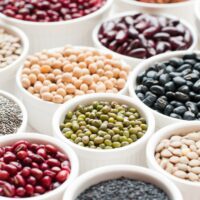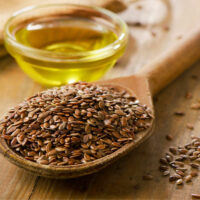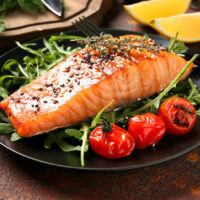
8 foods that help fight colon cancer
Colon cancer develops when there’s uncontrollable and abnormal cell growth in one’s colon or rectum, which invades and damages other healthy tissues. Since it originates in one’s intestines, colon cancer severely affects one’s ability to digest food and eliminate waste. According to the American Cancer Society, bad eating habits and an unhealthy lifestyle increase one’s chance of developing it. But some superfoods can help improve gut health and manage the disease better. Berries, black plums, grapes, and pomegranates Black plums, red and black grapes, and pomegranates contain anthocyanins. Similarly, berries, including black elderberries, blueberries, raspberries, blackberries, chokeberries, and strawberries, are excellent sources of anthocyanins and antioxidants. Anthocyanins help in slowing cancer cell growth and increasing tumor sensitivity to chemotherapy. They are also highly nutritious and fibrous, which boosts digestion. Apples and bananas Constipation and diarrhea are two of the early signs of colon cancer. Fruits like apples, oranges, pears, and bananas are rich sources of fiber that can help regularize one’s bowel movements and improve gut health. Cancer also causes chronic weakness in patients since the cancer cells consume abnormal amounts of energy and stress out the digestive system. So, fruits can help since they give an instant energy boost and are easier to digest.
Read More. 














